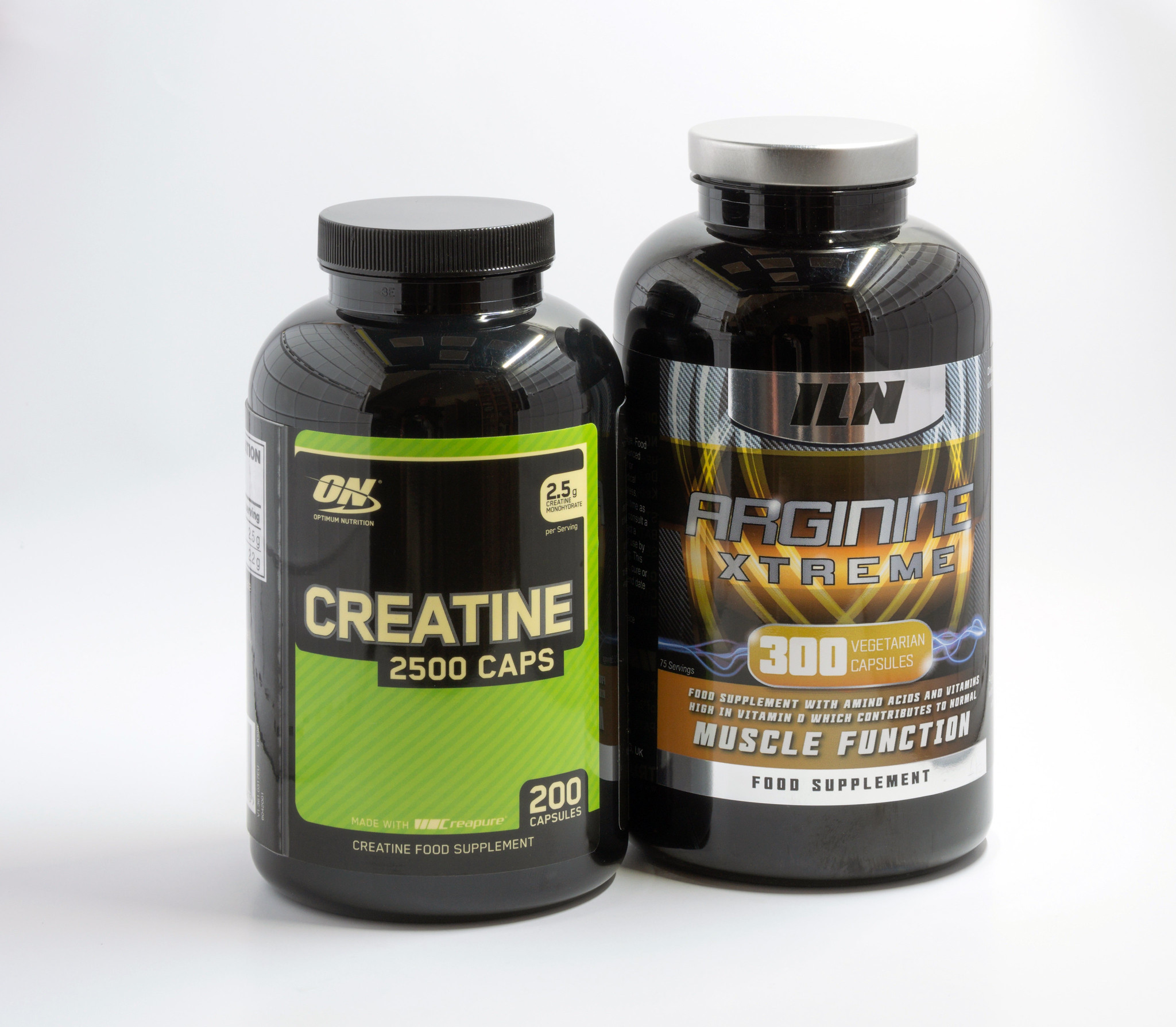Creatine is a naturally occurring substance (it’s actually a type of amino acid) that helps build muscles and repair damaged tissues. It also improves short-term, high-intensity exercise performance, making it one of the most popular supplements in the strength training and bodybuilding community. Creatine is normally taken daily, so what happens if you don’t take creatine for a day?
What Happens if You Don’t Take Creatine for a Day?
There will be no noticeable or long-lasting negative effects if you don’t take creatine for a day. This is true whether you have been taking it regularly or recently added it to your daily supplement stack.
And since most athletes supplement creatine for muscle growth, let me be clear, you will not experience any significant muscle loss if you miss a day of taking your creatine. The problem will only come if you continuously skip your daily dosage for many days in a row or stop taking creatine altogether.
With that said, if you are an athlete or bodybuilder, taking your creatine daily is essential to maximize muscle gains and performance in the gym. If you miss your dosage, ensure you return to taking creatine supplements the next day to avoid compromising your creatine stores.
Creatine comes in powder, tablets, capsules, liquids, and chewable forms. The manufacturers considered making creatine in various forms so that you can choose one that suits your preference. So if you’ve found yourself missing your daily creatine intake, consider if there is a form available that is more convenient for you to take daily.
How Does Creatine Work?
I think having a better understanding of how creatine works will provide the motivation necessary to not skip your daily intake. Creatine offers great benefits for strength training athletes, but you don’t get those benefits unless you remember to take your creatine daily.
Creatine is a natural substance produced and stored in the muscle cells. In these cells, creatine produces adenosine triphosphate (ATP), the primary energy source for skeleton muscles. Therefore, when you take a creatine monohydrate supplement, it increases the phosphocreatine in the muscles.
The phosphocreatine created leads to an increase in adenosine triphosphate that provides the needed energy to the muscles during high-intensity exercise or heavy lifting. The ATP also increases lean muscle mass, improves strength, and helps muscles recover quickly after the workout.
However, before creatine begins working, the muscles must undergo creatine saturation. There are two methods of saturating the muscles: the loading and the non-loading phases. The loading phase involves taking more creatine (20 grams per day) for five to seven days before reducing it to the regular dose. On one hand, non-loading involves taking a baseline of creatine each day for up to three weeks to reach full saturation.
Things to Do if You Missed a Day of Creatine
A steady energy supply is essential to the growth and repair of lean muscle mass, especially for athletes and gym rats. Creatine supplementation is one way of providing your muscles with energy during intense workouts. However, there are situations where you may miss your creatine supplement for a day, prompting you to do something to fill the gap.
So, what should you do to maintain the saturation level? These tips will help you recover:

Get Back on Track the Next Day
Missing creatine for a day has a minimal effect on your body and should not be a cause for alarm since you can continue your daily exercise. However, when you miss your creatine monohydrate supplement for a day, you must get back on track the next day.
Getting back on track the following day can help ensure a consistent level of creatine supplement in the body. It also helps your body fill the gap created during the omission, leading to improved exercise, a steady supply of muscle energy, and a boost in recovery time.
Eat Protein-Rich Foods
Another thing to do when you miss creatine for a day is to eat protein-rich foods. Remember that creatine is protein, and consuming protein-rich foods helps boost its level. Therefore, to compensate for the lost creatine, consider eating proteinous foods.
Protein-rich foods include red meat, fish, pork, herring, and chicken. These foods have different levels of creatine. For instance, each beef, salmon, and herring contain 0.9 grams of creatine per 100 grams serving. On the other hand, pork and chicken have 0.7 grams and 0.4 grams, respectively, per 100 grams serving.
Increase Your Creatine Intake if Using a Loading Phase
The loading phase involves taking more creatine supplements (20 grams per day) for five to seven days before moving to a lower maintenance dose. It is one of the effective methods gym goers use to saturate their muscle stores.
Therefore, if you miss creatine for a day in the loading phase, you must increase the daily intake the following day. This will help compensate for the lost creatine supplement and avoid prolonging the loading phase.
For instance, if you were taking four grams of creatine supplement five times a day, you would change and take eight grams of creatine five times a day the following day. This will help curb the lost day; hence you will still stay within the five to seven days routine. Staying hydrated and taking more protein-rich foods is advisable to help fill the gap created when you miss the dose.
What Happens if You Miss a Few Days of Creatine?
We have seen that missing your creatine for a day does not impact your progress negatively. So, what happens when you miss your daily dosage for a few days? Here are some of the adverse effects that may pop up when you miss creatine for an extended period of time (more than 30 days):

- Increased fatigue: The decreased level of creatine in the muscles means that the production of adenosine triphosphate (energy-producing molecules) is also reduced. This leads to tiredness and exhaustion during the exercise.
- Body weight loss: Creatine draws and retains water into the muscle cells. This makes your muscles bigger within a short time. When you miss creatine for an extended period, your water weight will decrease by at least 5%.
- Decreased creatinine level: Your body will experience a reduced level of creatine for a period of time. However, the body naturally produces the needed creatine to maintain the baseline.
- Leads to less mental focus: Creatine helps improve cognitive function and neuroprotection. Therefore, missing creatine for extended periods may lead to brain fog or less mental Focus.
- Increases the loading phase period: Missing creatine for a few days may disrupt the body’s creatine stores, especially when using the loading phase method to saturate the muscle cells. So, it will require additional time to restore or compensate for the lost time.
What Is a Loading and Maintenance Phase?
Take more creatine (20 grams per day) in the loading phase for five to seven days to saturate the muscle cells. After the period of seven days, you lower the dosage(three to five grams per day) to maintain the creatine level in the body.
On the other hand, the maintenance phase involves taking a smaller dosage(three to five grams) of creatine for two to three weeks. This period allows the creatine to saturate the muscles thoroughly, providing energy during workouts. This phase is also known as the non-loading phase and is used by individuals who prefer taking a smaller dose of creatine.
Frequently Asked Questions
When You Shouldn’t Take Creatine?
You should not continue taking creatine if it leads to stomach discomfort. Some people experience stomach discomforts such as bloating, nausea, and diarrhea when they use creatine supplements. People with high blood pressure, kidney problems, or liver diseases should also avoid taking creatine.
Can I Take Creatine if I Don’t Workout for a Day?
You can take creatine on rest days. However, you may not enjoy the benefit of creatine without working out, and it may not be worth the cost. Creatine helps improve performance during high-intensity exercise, so it may not be as effective if you do not engage in any physical activity.
But if you are only taking standard rest days, it’s actually a good idea to continue taking creatine daily to ensure your stores are full.
Can You Skip Creatine on Off Days?
Yes, you can skip creatine on off days and resume taking it the next day. Creatine is stored in the muscles and can be maintained at a higher level. So, you will still have enough creatine to provide the needed energy to perform high-intensity exercise when you resume. With that said, I recommend taking creatine daily to ensure muscle saturation.
Conclusion
Missing creatine supplementation for a day will unlikely hurt your exercise performance. However, consistent and regular use of creatine can improve muscle strength, endurance, and recovery. It is essential to maintain a consistent supplementation routine to achieve optimal results.
